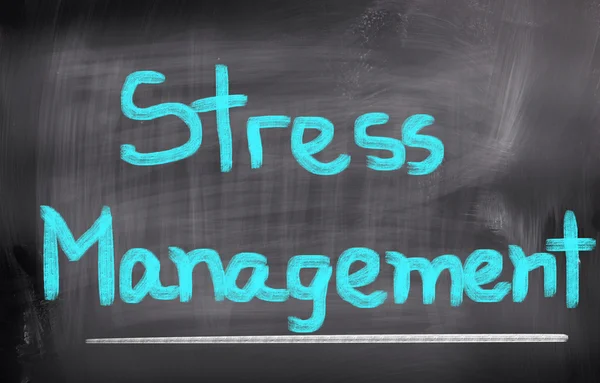
10 healthy habits to adopt in the new year
Sure, here is an intro for the blog "10 healthy habits to adopt in the new year" with an informative and humorous writing style:
As the new year approaches, many of us are thinking about resolutions and goals for the coming year. One area that many people focus on is their health, and for good reason! Incorporating healthy habits into your daily routine can have numerous benefits, such as improved energy levels, better sleep, and a stronger immune system.
But let's be real, adopting new habits can be hard. It's easy to fall into the same old routines and habits, even if they aren't the best for our health. That's where this blog comes in! In the following paragraphs, we'll be exploring 10 healthy habits that you can adopt in the new year to kickstart your journey towards improved well-being.
So if you're ready to make a change, grab a pen and paper (or open up the notes app on your phone) and get ready to take some notes. We'll be covering everything from exercise and nutrition to stress management and screen time. And don't worry, we'll be sprinkling in a little bit of humor to keep things light and enjoyable. By the end of this blog, you'll have a solid list of healthy habits to work on adopting in the new year.
Habit #1: Exercise regularly
We all know that exercise is important for our physical health, but it can also do wonders for our mental well-being. Regular exercise has been shown to improve mood, reduce stress, and boost self-esteem. Plus, let's be real, who doesn't feel a little bit more confident after a good sweat session?
But let's be honest, finding the motivation to exercise can be tough. Between work, family, and social obligations, it can be hard to fit in a workout. That's where a little bit of creativity and planning comes in. Try taking a walk during your lunch break, or join a gym or fitness class to mix things up. You can even enlist the help of a workout buddy to keep you accountable. Or, if the gym isn't your thing, there are plenty of other options for getting active. Try going for a hike, signing up for a dance class, or even just playing a game of basketball with friends. The key is to find something that you enjoy, so it doesn't feel like a chore.
If you're new to exercise, start small and gradually increase your activity level. Remember, something is always better than nothing! And don't forget to listen to your body and take breaks when you need them. Exercise should be something that you enjoy, not something that feels like a punishment.So get out there and get moving! Your body (and mind) will thank you.
Habit #2: Eat a balanced diet
We've all heard the saying "you are what you eat," and it's true! What we put into our bodies can have a big impact on our overall health and well-being. That's why it's important to focus on eating a balanced diet that includes a variety of nutrients.
But let's be real, eating healthy isn't always easy. With busy schedules and tempting fast food options around every corner, it can be tempting to skip the veggies in favor of something a little more convenient. That's where a little bit of planning comes in handy. Try packing healthy snacks for work or school, or meal prep on the weekends to set yourself up for success during the week. And remember, it's okay to indulge every once in a while. Just try to balance it out with plenty of fruits, vegetables, and whole grains.
Not sure where to start? Here are a few tips for incorporating more healthy options into your diet:
Start your day off right with a nutritious breakfast. Oatmeal with fruit, eggs with veggies, or a smoothie with protein powder are all good options.
Add more vegetables to your meals. Whether it's a big salad for lunch or some roasted veggies with dinner, aim for at least half of your plate to be filled with produce.
Don't forget about healthy fats. Foods like avocados, nuts, and olive oil are all good sources of healthy fats that can help keep you satisfied.
And last but not least, don't forget to enjoy your food! Eating should be a pleasure, not a chore. So take your time, savor your meals, and make sure to include some of your favorite foods.
By making small changes to your diet, you can make a big impact on your overall health and well-being. Happy eating!
Habit #3: Drink plenty of water
We all know that water is important for our bodies, but it's easy to forget to drink enough of it. And yet, staying hydrated is crucial for maintaining good health. Water helps to flush toxins out of our bodies, transports nutrients to our cells, and helps to regulate our body temperature. Plus, let's be real, who doesn't love the feeling of being properly hydrated? Everything just seems to work a little bit better.
But how much water should you be drinking? A general rule of thumb is to aim for 8-8 ounces of water per day. However, this can vary depending on your size, activity level, and the climate you live in. If you're not sure how much you should be drinking, a good way to gauge your hydration level is by checking the color of your urine. If it's light yellow or clear, you're likely well hydrated. If it's dark yellow or amber, it's time to drink up!
So how can you make sure you're getting enough water? Here are a few tips:
Carry a water bottle with you. Whether you're at work, running errands, or out for a hike, having a water bottle on hand can help remind you to drink up.
Drink a glass of water before each meal. This can help to fill you up and prevent overeating.
Choose water-rich foods. Fruits and vegetables like watermelon, cucumbers, and lettuce are all good options.
And if plain water just isn't your thing, try adding some slices of fruit or herbs like mint or basil to give it some flavor.
By making a conscious effort to drink more water, you can help keep your body functioning at its best. So go ahead and make H2O your go-to beverage of choice!
Habit #4: Get enough sleep
We've all heard the saying "sleep is the best medicine," and it's true! Getting enough sleep is crucial for maintaining physical and mental health. Not only does it help to repair and restore our bodies, but it also helps to improve mood, memory, and cognitive function. Plus, let's be real, who doesn't love a good night's sleep? There's nothing quite like waking up feeling well-rested and ready to tackle the day.
But with busy schedules and screens constantly vying for our attention, it can be hard to get the recommended amount of sleep. The National Sleep Foundation recommends adults aim for 7-9 hours of sleep per night. But if you're having trouble sleeping, there are a few things you can try:
Establish a consistent sleep schedule. Try to go to bed and wake up at the same time each day, even on weekends.
Create a relaxing bedtime routine. This can include things like reading a book, taking a warm bath, or practicing deep breathing exercises.
Make your bedroom a sleep-friendly environment. Keep the temperature cool, the lights low, and eliminate as much noise and distractions as possible.
Avoid screens before bedtime. The blue light emitted by screens can disrupt your body's natural sleep cycle, so try to unplug at least an hour before hitting the hay.
By making a few simple changes, you can improve your sleep quality and wake up feeling refreshed and rejuvenated. Sweet dreams!
Habit #5: Practice stress management techniques
We all experience stress from time to time, but chronic stress can take a serious toll on our physical and mental health. That's why it's important to find ways to manage stress and maintain a sense of balance.
But let's be real, stress management can be easier said than done. With busy schedules and endless to-do lists, it's easy to feel overwhelmed. That's where stress management techniques come in handy. These can include things like meditation, deep breathing exercises, or regular physical activity. The key is to find what works for you and make it a regular part of your routine.
Not sure where to start? Here are a few stress management techniques to try:
Take a few minutes each day to sit in silence and practice deep breathing. Simply close your eyes, take slow, deep breaths, and focus on your breath.
Find a physical activity that you enjoy and make it a regular part of your routine. This can be anything from running to yoga to dancing.
Make time for relaxation and self-care. Whether it's a bubble bath, a massage, or just taking a few minutes to sit and read a book, make sure to prioritize self-care.
And if you're feeling really overwhelmed, don't be afraid to seek professional help. A therapist or counselor can help you work through your stress and find healthy coping mechanisms.
By incorporating stress management techniques into your daily routine, you can help to reduce stress and improve your overall well-being. So go ahead and take a deep breath and relax. Your mind (and body)
Habit #6: Avoid tobacco and excessive alcohol consumption
We all know that tobacco and excessive alcohol consumption can have serious negative effects on our health. Tobacco use is a leading cause of preventable death and disease, and excessive alcohol consumption can increase the risk of liver disease, cancer, and accidents.
But let's be real, it's not always easy to cut back on these habits. Whether it's the social pressure to smoke or drink, or just the addictive nature of these substances, it can be tough to break the cycle. That's where a little bit of planning and support comes in handy. If you're trying to cut back on tobacco or alcohol, here are a few tips to try:
Seek support. Whether it's from friends, family, or a support group, having a network of people to help you stay on track can make a big difference.
Plan ahead. If you're in a social setting where tobacco or alcohol is present, come up with a plan beforehand to help you avoid temptation.
Find alternative activities. Whether it's going for a walk, trying a new hobby, or just spending time with friends, there are plenty of ways to have fun and relax without relying on tobacco or alcohol.
And if you're having trouble cutting back on your own, don't be afraid to seek professional help. There are resources available to help you quit smoking and manage alcohol consumption.
By avoiding tobacco and excessive alcohol consumption, you can significantly improve your overall health and well-being. So go ahead and give it a try! Your body (and wallet) will thank you.
Habit #7: Take breaks from screens
We all know that screens are a big part of modern life, but too much screen time can have negative effects on our health. From eyestrain and disrupted sleep patterns to neck and back pain, excessive screen time can take a toll on our bodies. That's why it's important to take breaks from screens and give our eyes and bodies a rest.
But let's be real, screens can be hard to resist. Whether it's scrolling through social media, binging the latest show on Netflix, or just catching up on work, it's easy to lose track of time. That's where setting boundaries comes in handy. Try setting limits on your screen time and take regular breaks to stretch, walk around, or just take a few minutes to look at something other than a screen.
Not sure where to start? Here are a few tips for taking breaks from screens:
Set limits on your screen time. Whether it's using an app to track your usage or setting a timer to remind you to take a break, finding ways to manage your screen time can be helpful.
Take breaks every 20-30 minutes. This can be as simple as standing up and stretching, or looking out the window for a few minutes.
Consider using a blue light filter on your screens. Blue light has been shown to disrupt sleep patterns, so using a filter can help reduce its impact.
And if you're having trouble breaking the screen habit, try finding alternative activities to do in your downtime. Whether it's reading a book, going for a walk, or spending time with friends, there are plenty of options to choose from.
By taking breaks from screens, you can help reduce the negative effects of excessive screen time and improve your overall well-being. So go ahead and give it a try! Your eyes (and body
Habit #8: Volunteer or give back to the community
We all know that volunteering and giving back to our communities can have a positive impact on others, but it can also have a big impact on our own well-being. Studies have shown that volunteering can improve mental health, increase life satisfaction, and even boost physical health. Plus, let's be real, who doesn't love the feeling of doing something good for others?
But with busy schedules and countless demands on our time, it can be hard to find the time to volunteer. That's where a little bit of planning and creativity comes in handy. Whether you have a few hours a week or just a few minutes a day, there are plenty of ways to give back.
Not sure where to start? Here are a few ideas:
Look for opportunities in your community. Many organizations, schools, and non-profits rely on volunteers to help them with a variety of tasks.
Use your skills and interests to find a volunteering opportunity that's a good fit for you. Whether it's working with animals, helping out at a soup kitchen, or teaching a class, there are plenty of options to choose from.
Consider virtual volunteering. With so many organizations going digital, it's easier than ever to volunteer from the comfort of your own home.
And if you're short on time, there are still ways to give back. Whether it's donating money or goods, or simply taking the time to
Habit #9: Practice gratitude
We all know that it's easy to focus on the negative aspects of life, but practicing gratitude can have a big impact on our well-being. Studies have shown that people who practice gratitude experience increased happiness, improved physical health, and better relationships. Plus, let's be real, who doesn't love feeling grateful and thankful?
But how can you incorporate gratitude into your daily routine? It's easier than you might think! Here are a few tips:
Keep a gratitude journal. Each day, write down a few things you're grateful for. It can be something big or small, just make sure to focus on the positive.
Share your gratitude with others. Whether it's telling a friend or family member how much you appreciate them, or writing a thank-you note to someone who has made a difference in your life, expressing gratitude can help strengthen relationships.
Practice mindfulness. Take a few minutes each day to focus on the present moment and appreciate what you have. This can be as simple as paying attention to your senses and the things around you, or taking a few deep breaths and focusing on your breath.
And if you're having trouble coming up with things to be grateful for, try focusing on the small things. Whether it's a warm cup of coffee, a sunny day, or a good book, there are always things to be thankful for.
By practicing gratitude, you can improve your overall well-being and cultivate a positive outlook on life. So go ahead and give it a try! Your mind (and those around you
Habit #10: Seek professional help when needed
We all face challenges and struggles in life, and it's important to remember that it's okay to ask for help when we need it. Whether it's dealing with a mental health issue, navigating a difficult life event, or just needing some extra support, seeking professional help can make a big difference.
But let's be real, seeking help isn't always easy. Whether it's fear of stigma, lack of resources, or just not knowing where to start, it can be tough to take that first step. That's where a little bit of research and planning can come in handy.
Not sure where to start? Here are a few tips:
Do your research. There are many resources available to help you find the right professional for your needs. Whether it's a therapist, counselor, coach, or another type of professional, make sure to do your homework to find the best fit.
Consider your needs and goals. Think about what you want to get out of therapy or counseling, and make sure to communicate that to the professional you choose.
Don't be afraid to ask for referrals. If you have a healthcare provider or trusted friend or family member, they may be able to provide recommendations for professionals in your area.
And if you're feeling really overwhelmed, don't hesitate to reach out for emergency help. Whether it's a crisis hotline or a visit to the emergency room, there are resources available to help you in times of crisis.
Conclusion
Congratulations on making it to the end of this list of healthy habits to adopt in the new year! Whether you're looking to improve your physical health, mental well-being, or just overall quality of life, these habits can make a big difference.
But let's be real, adopting new habits isn't always easy. It takes time, effort, and a bit of patience. So if you're having trouble getting started, don't get discouraged. Just take it one step at a time and remember that every little bit counts.
And if you're feeling overwhelmed, don't be afraid to seek help. Whether it's from friends, family, or a professional, having support can make a big difference.
So go ahead and give these healthy habits a try. Your mind, body, and overall well-being will thank you!
 Reviewed by jadan
on
January 04, 2023
Rating:
Reviewed by jadan
on
January 04, 2023
Rating:














No comments: